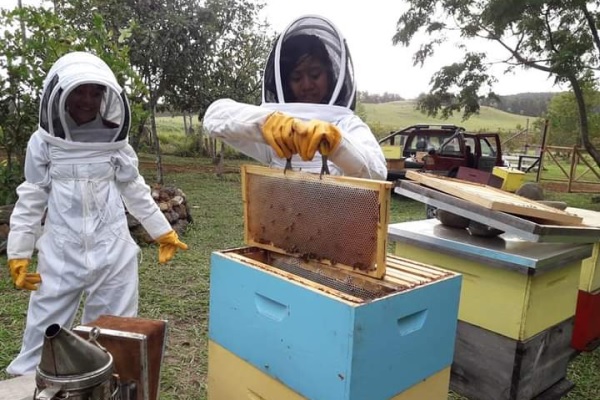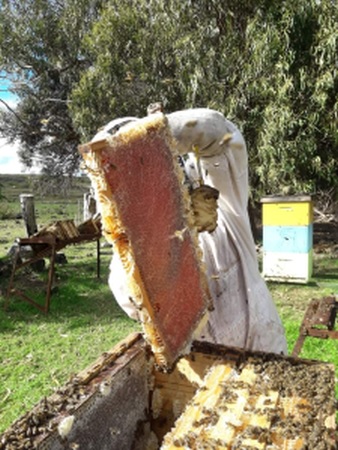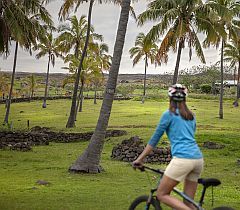The bees of Rapa Nui are among the healthiest in the world
Bees and other pollinators such as hummingbirds, butterflies and bats are increasingly threatened. There are about 20,000 bee species in the world and they are the biggest pollinators.

Like all of the Americas, bees were introduced to Rapa Nui with the arrival of priests in around 1850 and have remained there since then, pollinating mangoes, pineapples, bananas, guavas and flowers in this territory.
A study by the Beekeeping Entrepreneurship Center of the Universidad Mayor (Ceapi Mayor) and the Chilean Beekeepers’ Corporation (Cach), with the support of the Foundation for Agrarian Innovation (FIA), revealed that the island’s bees are free of the pathogens (mites, viruses and bacteria) that are present in the rest of the continent and responsible for 60% of hive deaths worldwide, meaning that the island’s beekeeping is very clean and without hazardous residues that could be transferred to the honey.
HIVE PRODUCTION
The scant contact with the continent and a constant warm climate allows the hive to remain active throughout the year, along with the flowering of the plants, unlike the continent.
This is reflected in the annual honey production of each hive, which can reach between 90 and 120 kilos on the island, compared to 20 kilos on the continent.

Christine Pont-Hill is an Explora guide in Rapa Nui and currently has three hives. She began this practice as a hobby 10 years ago, selling products like honey, honey with propolis and honey wine. She commented that the island’s tropical flora gives the honey different characteristics, as because they are healthy bees there is no need to use antibiotics or other medicines, which adds value to the local product and makes it unique in the world.
For this reason, in 2019 the Agricultural Livestock Service (SAG) implemented regulations seeking to protect local production of honey and its byproducts, regulating the entry of bee products, live bees and beekeeping material in general.
Protecting bees and raising awareness is essential, as the studies performed over recent decades show that the number of species has declined worldwide, and they are the ones responsible for pollinating 85% of food crops and fruits all over the world.
“Bees’ value goes beyond the products we sell, as they are fundamental to planetary biodiversity. This is why I participate in fairs and courses here on the island to inform and share their importance to the ecosystem,” Christine Pont-Hill, Explora guide in Rapa Nui.

